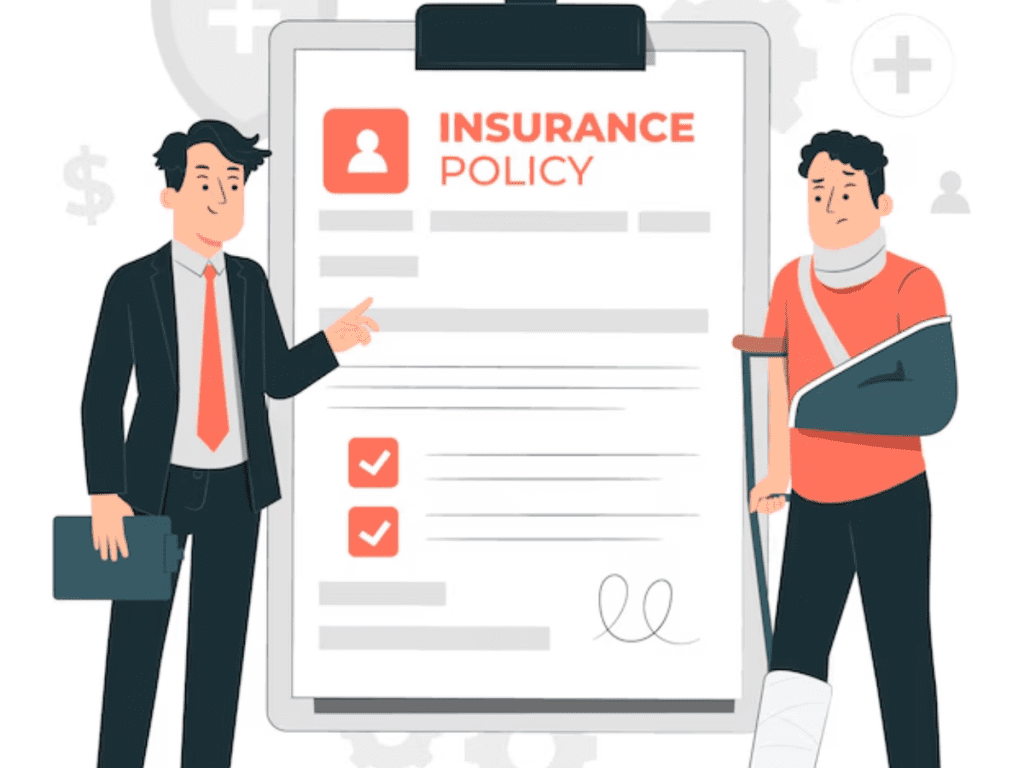Introduction
When it comes to protecting your assets and financial future, standard insurance policies such as auto or homeowners insurance may not always provide sufficient coverage in the face of major liability claims. This is where umbrella insurance steps in—a type of coverage designed to provide additional protection beyond the limits of your primary insurance policies. It serves as additional protection for loss of money due to litigations or property damages through liabilities and all other legal ramifications.
This piece will break down what umbrella insurance is, how it works, and who needs to have one to ensure your holistic financial protection.
Understanding Umbrella Insurance
Umbrella insurance is considered by many a form of “second layer” or “back up” liability insurance. It is designed to safeguard you once the liability limits of your current policies, such as auto, home, or renters insurance, are depleted. For example, if you are held liable for an accident that causes serious damages or injuries, your standard insurance may only pay for a part of it. The umbrella insurance will cover the rest up to the limits of the umbrella policy.
What’s unique about umbrella insurance is the broad scope of protection. It not only extends coverage for incidents already included in your primary policies but also provides coverage for liabilities that are often excluded, such as libel, slander, or legal fees for lawsuits unrelated to bodily injury or property damage.
How Does Umbrella Insurance Work?
To understand how umbrella insurance works, let’s consider an example:
Imagine being in a car accident where you are to blame and the total cost of the damages was partly medical costs and partly attorney fees, coming out to be $750,000. When your liability limit under your auto insurance is placed at $500,000, you would have to pay $250,000 out-of-pocket. An umbrella insurance policy would cut in to take care of the remaining $250,000 without having to draw into savings or sell some portion of your assets to raise the funds.
Umbrella insurance usually requires you to have a certain level of liability coverage on your primary insurance policies (for example, auto or homeowners insurance) before it can be activated. Once those limits are reached, the umbrella policy takes over.
What Does Umbrella Insurance Cover?
Umbrella insurance is famous for its wide range of coverage, which includes:
- Excess Liability Coverage:
- It expands the limits of liability in your common policies for events such as auto accidents, damage to property, or other personal injury lawsuits.
- Wider Protection:
Provides protection to events not insured under other primary policies, including defamation cases or libel/slander suits.
Provides cover for lawyers fees, which might be filed that do not present an act of violence or cause damage to property. - Global Coverage:
In most scenarios, umbrella insurance will cover injuries that occur overseas in your foreign locations, so that you are reassured while traveling. 4. Landlord Protection:
If you have rental property, umbrella insurance can cover accidents and lawsuits when tenants get injured or if someone sues due to a violation of the contract of the landlord.
Who Needs Umbrella Insurance?
Although umbrella insurance is not legally required, it can serve as a vital safety net for many individuals. The following are some scenarios where umbrella insurance is quite useful:
- High-Net-Worth Individuals:
- If you have substantial assets such as real estate, investment, or savings, umbrella insurance safeguards those assets from lawsuits.
- Homeowners:
- Owning a home or rental property exposes you to liability more so if you have features such as a swimming pool, trampoline, or dogs.
- Frequent Hosts:
You are liable if you frequently host parties or gatherings and someone gets injured on your property or because of your hospitality. - Drivers:
- If you drive often, or if your household includes teenage drivers, the likelihood of auto-related liability claims increases.
- Professionals or Public Figures:
- People who are in the public eye because of their profession, or who hold public office, are more likely to be sued for defamation, slander, and other personal liability issues.
- Recreational Vehicle Owners:
- If you have boats, ATVs, or any other kind of recreational vehicle, umbrella insurance will also pay liabilities associated with such use.
- Parents:
- If your children are into activity that may lead to accidental damage or injury to other people, then you need umbrella insurance as extra cover.
End
How Much Does Umbrella Insurance Cost?
One of the most attractive features of umbrella insurance is its affordability. While providing millions of dollars in extra liability coverage, the cost of an umbrella policy is relatively low. On average, you can expect to pay:
- $150 to $300 annually for the first $1 million in coverage.
- $75 to $100 annually for each additional $1 million in coverage.
These quotes can differ depending on other parameters like your location, assets, risk exposure, and the extent of coverage you need.
Umbrella Insurance Benefits
- Financial Safety:
This coverage saves your savings, investments, and future earnings from being frittered away by big claims or lawsuits. - Relief and Assurance:
It provides the satisfaction of knowing that you have a safety net in case of unforeseen liabilities. - Adaptable and Broad Coverage:
- It covers a wide range of incidents, including those not typically covered by standard policies.
- Affordable Solution:
- Provides high-value protection at a relatively low cost compared to the financial risks it mitigates.
- Global Coverage:
- Ensures that you are protected regardless of where an incident occurs, giving you confidence while traveling or living abroad.
How Do You Know if You Need Umbrella Insurance?
To know if you need umbrella insurance, you have to ask yourself these questions:
Do you have something you would want to protect from the rest of the world, like a home, investments, or even a business?
Do you engage in activities that heighten your liability exposure, such as driving, hosting events, or renting out a property?
Are you concerned about being sued over defamation or some accident that causes others to get injured?
- Would a large claim or lawsuit put your assets at risk?
If you answered “yes” to any of these questions, it may be worth considering umbrella insurance as part of your overall risk management plan.
Common Misconceptions About Umbrella Insurance
Despite its obvious benefits, there are several myths about umbrella insurance that can cause people to overlook its value. Let’s address some of these myths:
- “Only The Rich Need Umbrella Insurance”
Most people feel that umbrella insurance applies only to the rich. Of course, it is true that the wealthy possess more that will be at risk during lawsuit. However, virtually anyone may be embroiled in a situation where they may experience severe financial ruin. Umbrella insurance is there for anyone at any income level who will like to protect their now and future assets. - “I Don’t Need Umbrella Insurance Because I Already Have Auto and Home Insurance”
- Primary policies, although offering a foundation of liability coverage, typically come with limits that might not be enough to cover severe situations. For instance, if you cause an accident and have medical and legal bills that surpass your policy limit, umbrella insurance ensures you won’t have a financial obligation left behind.
- “Umbrella Insurance Covers Everything”
- Although umbrella insurance is comprehensive, it doesn’t cover everything. It is primarily designed for liability claims, meaning it won’t cover your own property damage, business-related liabilities, or intentional acts that cause harm. Understanding what is and isn’t covered can help set realistic expectations.
- “It’s Too Expensive”
- Surprisingly, umbrella insurance is relatively affordable compared to the coverage it provides. Many people believe it is more expensive than what it actually costs and, thus, out of their budget. A very small annual premium will protect you against future financial loss.
Steps to Purchase Umbrella Insurance
If you think umbrella insurance makes sense for protecting your finances, here’s how to do it:
- Assess Your Needs:
- Get an inventory of your assets, income, and any risk exposures. Ask yourself if you own real estate, have dependents, or engage in behaviors that heighten your liability exposure.
- Review Your Current Policies:
• Check to make sure your primary insurance policies include the minimum liability coverage most umbrella policies demand. You may need minimum auto or homeowner’s policies to qualify, for example. - Determine the Coverage Amount:
Umbrella policies begin with $1 million in coverage, although you can adjust to higher limits depending on what you want. You need to assess your exposure to risks and liabilities so you can determine what is appropriate. - Shop Around:
- Compare quotes from different insurance providers to find a policy that offers the best combination of coverage and affordability. Look for a reputable insurer with strong customer reviews and a history of reliable service.
- Bundle Policies:
Many insurers offer discounts if you purchase umbrella insurance along with other policies, such as auto or home insurance. - Understand the Policy Terms:
- Thoroughly read the policy’s terms and conditions to understand what is covered and any exclusions that apply. If still in doubt, do not hesitate to ask your insurer to explain.
Actual Situations Where Umbrella Insurance Cuts Through the Fray
- Auto Accident Liability:
- A driver is involved in a car accident causing multiple injuries and significant property damage. The total cost of medical bills and legal claims amounts to $1.5 million, but their auto insurance only covers $500,000. The umbrella insurance policy covers the remaining $1 million.
- Homeowner Liability:
- A guest slips and falls on icy steps at your home, leading to a lawsuit for medical expenses and pain and suffering. If the total settlement exceeds your homeowners insurance limits, the umbrella policy ensures you’re not left paying out of pocket.
- Defamation Claim:
- Some comment you wrote about a business online gets you sued for libel. Since your underlying insurance does not include defamation, your umbrella policy pays for attorney fees and judgments.
- Rental Property Accident:
- A tenant at your rental house sues you after asserting the staircase is not safe and has caused him or her to fall. The umbrella coverage offers liability beyond the limits set by your landlord insurance.
- Holiday Accident:
- When on holiday in another country, you unintentionally harm a rental or injure somebody. Most umbrellas have a worldwide cover for you even where the incident might be outside the country.
Things to Consider Before Obtaining Umbrella Insurance
The following are considerations to take into account when determining whether to obtain umbrella insurance:
- Your Asset Value:
- All of your assets, including property, savings, investments, and other valuable items, are a great determinant of the amount of coverage you may require.
- Potential Risks:
- Assess any risks that may raise your liability exposure, such as owning a dog, engaging in high-risk hobbies, or frequently hosting guests.
- Current Policy Limits:
Ensure your primary policies have adequate liability coverage to meet the minimum requirements for adding umbrella insurance. - Future Income:
- Even if you don’t have substantial assets now, future earnings can be at risk in lawsuits. Umbrella insurance can help protect your earning potential.
Conclusion: Why Umbrella Insurance Is Worth Considering
In a world where lawsuits and liability claims are becoming increasingly common, umbrella insurance offers an affordable and practical way to protect your financial well-being. It provides peace of mind by ensuring that unexpected events don’t result in financial ruin.
Whether a homeowner, parent, landlord, or anyone who wants to secure one’s future, umbrella insurance is a flexible and inexpensive tool for comprehensive protection. With risk analysis by an insurance professional, one will be able to determine whether this level of protection is necessary. At the end of the day, that small cost in umbrella insurance might just save you from devastating financial ends.

